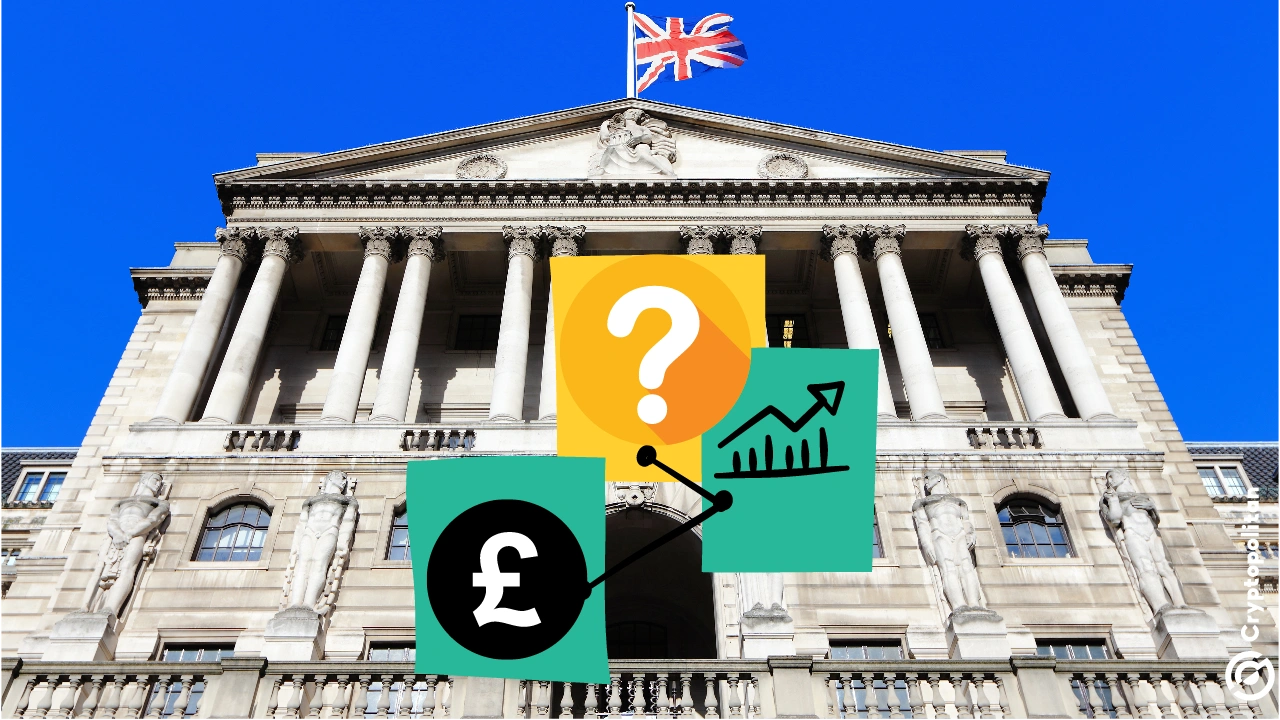According to a Financial Times report, the Bank of England (BoE) faced doubt from financial markets over its ability to deliver on its 2% inflation target. The report revealed that while actual figures from the UK’s central bank showed positive progress in taming inflation, financial markets remained skeptical of the BoE’s official projections.
Last year, the BoE predicted that inflation would be at 3% as both interest rates and unemployment stayed above 5% by the end of 2024. However, the situation turned out more positive as the report revealed that inflation eased closer to the 2% target while interest rates fell to 4.75% and unemployment was low at 4.3%.
The BoE battles market doubts amid persistent inflationary pressures
UK financial markets do not expect the BoE to hit its 2% inflation target.
That's internationally unusual
They expect inflation to average 3% over next 50 years or so….
…What is going on?
My latesthttps://t.co/QBLYhH9g6T
Sign uphttps://t.co/9W1LiN2e7a pic.twitter.com/S0KtPvinOu
— Chris Giles (@ChrisGiles_) November 26, 2024
Clare Lombardelli, the BoE’s deputy governor for monetary policy, gave a speech yesterday at the annual BoE watchers’ conference seeking to address issues about the central bank’s credibility, policy, and forecasting. However, her speech gave several explanations for the market’s persistent belief in higher UK inflation, including doubt about RPI change.
Despite the seemingly good inflationary outcome, Lombardelli declared it was too early to declare victory on inflation. She noted that the outlook on salaries and services inflation was ‘unclear from here’ because the pace of wage growth was not slowing as much as expected.
Lombardelli warned the conference that a scenario in which companies and workers get used to wage rises of 3.5% to 4% and price inflation of 3% would be more costly to change if it becomes entrenched. However, the National Institute of Economic and Social Research think tank predicted that inflation in the UK could rise to 3% in 2025.
“But at this point, I am more worried about the possible consequences if the upside materialised, as this could require a more costly monetary policy response.”
– Clare Lombardelli
Lombardelli said that she supported the gradual removal of monetary policy restrictions and would be monitoring the flow of data over the coming months so that the BoE could calibrate its policy path as needed.
Lombardelli addresses market doubts as other experts weigh in on the UK’s economic outlook
Lombardelli acknowledged the financial markets’ concerns and said the BoE was working to improve its forecasting models. While she admitted that the BoE’s efforts to improve its models were ongoing, Lombardelli confirmed that the changes in how the UK’s central bank predicted the future would be huge.
She expressed a ‘hawkish’ view on inflation, suggesting that the risks of inflation lasting for too long outweighed the risks of lower inflation. Her colleague on the monetary policy committee, Swati Dhingra, shared most of her sentiments but viewed the risks differently.
Overall, Lombardelli disclosed that the BoE was planning to gradually reduce its monetary policy until it had more information about inflation’s behavior. She also outlined the central bank’s plan to implement reforms suggested by Ben Bernanke, a former U.S. Fed chair and Nobel Prize winner.
Ian Harnett, chief investment strategist at Absolute Strategy Research, argued that central banks should aim to bring inflation down after periods of high inflation. DeAnne Julius, former UK monetary policy committee member, emphasized that the UK could face stagflation since the general economic outlook was more pessimistic.
Martin Sandbu argued that Europe needed to save less and suggested different policy changes to achieve this. He pointed out that many of the suggested policy changes were unpopular with the BoE.
A Step-By-Step System To Launching Your Web3 Career and Landing High-Paying Crypto Jobs in 90 Days.





